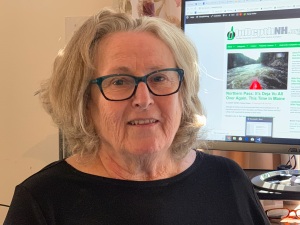
An actual news desert. Photo (cc) 2008 by Stefano Brivio.
As nonprofit news becomes an increasingly important part of community journalism, there’s a rift developing between large foundations and small publishers who say that they’re being left behind. Sophie Culpepper wrote about this recently for Nieman Lab, and a new organization called the Alliance of Nonprofit News Outlets has been founded to represent those overlooked media outlets.
The most recent development on this front is a scorching piece at Local News Blues by Alice Dreger, an author, historian and a founder and former publisher of East Lansing Info. Dreger takes note of the recent Knight Media Forum, whose organizers she describes as being more interested in developing software tools of dubious merit than in providing operating funds to hyperlocal publishers. She writes:
The KMF has always been a towel-slapping, country club locker room with waiters coming by to offer bacon-wrapped shrimp, but this year was particularly troubling. As local news publishers are desperately trying to keep from laying off staff and closing up shop, representatives of the Knight Foundation, MacArthur Foundation, and their joint Press Forward venture got up on stage to assure the world they’re going to save us.
“We are in it with you, and together we will crack the code of sustainability,” said Maribel Pérez Wadsworth, the president of the Knight Foundation. You know, the Knight Foundation — the behemoth sitting comfortably on a multi-billion-dollar endowment.
Psst, Maribel! Look under your seat!
She also quotes Nancy West of InDepthNH as saying that Knight seems more interested in artificial intelligence than in paying for news. West, a past guest on our podcast, “What Works,” promptly republished Dreger’s piece. That led to a response from John Palfrey, the president of the MacArthur Foundation, which is the lead foundation in Press Forward. “Thanks for the tag and the feedback,” he wrote on Twitter/X. “I know the team will bear these critiques in mind as grantmaking ramps up.”
The bottom line is that there isn’t enough national money for everyone. Dreger notes that Press Forward has decided to make a priority of funding projects that serve communities of color, which I think makes a lot of sense, even if that leaves other projects behind. Ultimately, nonprofit news outlets have to educate philanthropic organizations in their own backyards that quality journalism is as worthy of funding as youth programs and the arts. And yes, I realize that’s easier to do in some places than in others.


